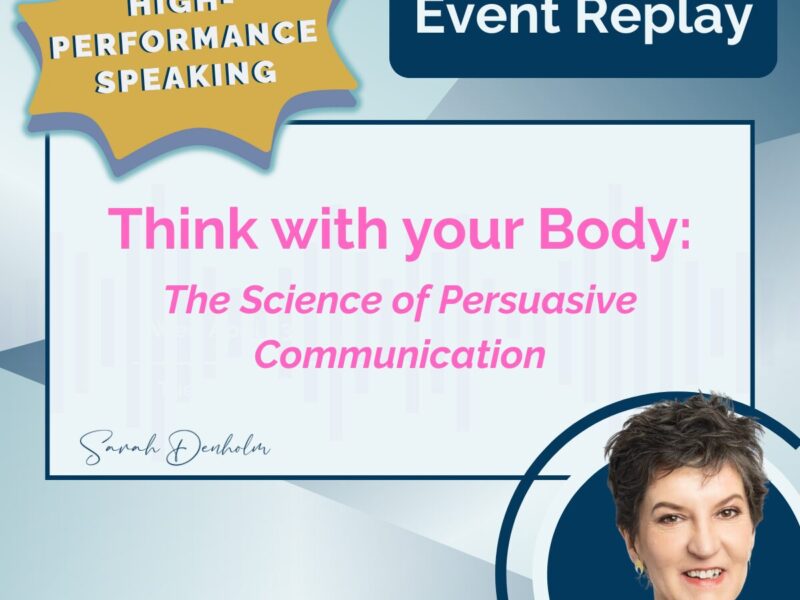I’ve always had high expectations of myself – and my family environment growing up was a big part of that. (A very high-achieving Cambridge-educated half brother and sister 11 and 13 years older than me set the bar high!).
And part of this background has meant that I’ve always strived for future goals – and hand-in-hand with that, not always celebrated successes along the way. Always pushing and working towards something just out of reach – and when it was reached, moving right on to the next thing with barely any acknowledgement.
This is a stressful way to live – and very common, as you’ll know if you can relate to what I’m saying.

And I work with high-achieving clients of course. Public speaking can really bring out the stress/need for achievement/fear of failure in us. So this brings me back to expectations.
Where do you set yours?
If you’re a perfectionist, what I’m about to say will make sense! When we focus on what we think should happen: every detail to the highest standards – we’re likely to become anxious, unmotivated and feel hopeless.
Unmet expectations actually generate a threat response in your brain. Let me quote Dr Evian Gordon, founder of the Brain Resource Company, which has developed the world’s largest brain database. Gordon says:
“With any brain function, the important thing is firstly to minimise threat.” – Evian Gordon
Solutions.
Let me give you two solutions to the threat of focusing on your “shoulds” and high, high standards – and bear with me here:
- Keep your expectations low in the short term.
I’ve also written about this here.
You might now be going “just hang on a minute”…so let me finish the thought.
Set expectations low short term, very high long-term.
High long-term, because you often don’t know how far you can go until you’re well into the journey, and of course, you want to aim as high as you possibly can.
But if you set the bar too high before you’ve properly started that journey, it’s almost certain that you’ll get demoralised and downhearted, which is exactly what you don’t want to happen – especially if you’ve tried working on your speaking skills before without success. You may even give up completely.
2. Focus on exploration, not expectation. Trusting the process and focusing on the next step: while still holding the picture of what’s possible. This is a balancing act, I won’t deny it!
But each time you breathe, low and slow; talk kindly to yourself (self-compassion is also a big part of it as I talk about here); and focus on your next action, it helps to build that balance of present and future expectations.
Start small, and appreciate each step – appreciate how far you’ve come, too. We can be so focused on what’s next that we don’t really celebrate anything we achieve, as I mentioned above. And this is a deeply unsatisfying, stressful way to live.
There’s a lot in this post, I know. I believe that something will resonate for you: please give thinking differently about expectations a go. It can change your life. And I’m not joking.
To sum up:
Set high expectations for yourself long-term, and very low for the next thing you’re about to do.
Focus on exploration, not expectation.
Realise that next-step focus is the way to go.
Breathe low and slow, smile and appreciate what you’ve achieved so far.
Best wishes with your public speaking!




